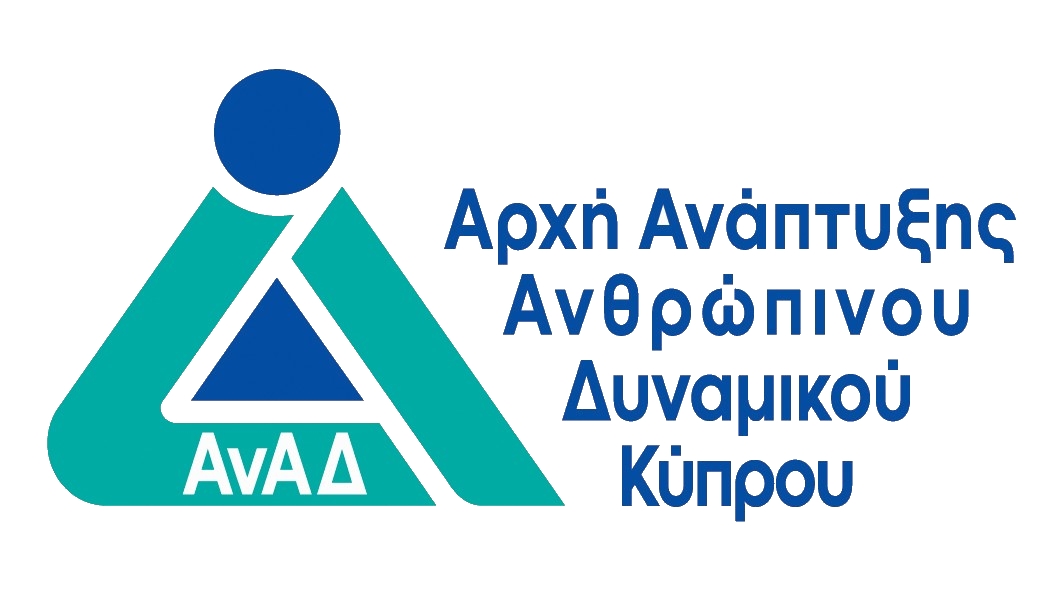Corporate Sustainability Due Diligence (CSDD)
- Οργάνωση/ Διοίκηση/ Ηγεσία - Χρηματοοικ. Ασφαλιστικά Τραπεζικά - Ενέργεια/ Α.Π.Ε./ Περιβάλλον


ΠΕΡΙΓΡΑΦΗ
In today’s global business environment, the importance of corporate sustainability due diligence (CSDD) cannot be overstated. Companies are increasingly held accountable by regulators, stakeholders and consumers, to ensure their operations take into consideration Environmental, Social and Governance (ESG) issues.
This comprehensive course dives into CSDD based on the latest regulatory framework, the Corporate Sustainability Due Diligence Directive (CSDDD), introduced by the European Commission. Participants will be introduced to the Corporate Sustainability Reporting Directive (CSRD), comprehensive and transparent sustainability reporting and how it complements the due diligence requirements set out in the CSDDD. Participants will gain a thorough understanding of CSDD, exploring the processes and practices needed to identify, prevent and mitigate adverse impacts on human rights and the environment, throughout their business operations and supply chains. The course will cover the essential components of the CSDDD, highlighting key requirements, governance implications and the potential consequences for non-compliance, including civil liabilities and sanctions.
Although initially the CSDDD directly impacts large companies with over 1,000 employees and a turnover exceeding 450 million euros, Small and Medium-sized Enterprises (SMEs) are also indirectly affected. SMEs need to be equipped to respond to sustainability-related queries from larger clients, partners, banks, and other stakeholders. This course will help SMEs understand the terminology, requirements and reasons behind these new enquiries, preparing them to meet the expectations of their business ecosystem.
A significant portion of the course is dedicated to Impact, Risk and Opportunity (IRO) assessment, a critical element of effective due diligence. Participants will learn how to conduct robust IRO assessments, which help in evaluating the impacts, risks and opportunities associated with their business activities. These assessments are vital for integrating sustainability into corporate strategies and driving long-term value.
The aim of the course is to equip participants with the necessary knowledge and skills to develop and enforce policies that promote ethical conduct, safeguard human rights and minimize environmental impacts, thus contributing to a more sustainable and responsible business environment.
ΣΚΟΠΟΣ ΣΕΜΙΝΑΡΙΟΥ
By the end of the programme, participants will be able to:
- Understand the principles and importance of CSDD
- Comprehend the key components and requirements of the CSDDD
- Conduct IRO assessments
- Engrave sustainability into corporate governance frameworks
- Follow the connection between CSDDD and CSRD and their integration for corporate reporting
- Apply due diligence practices to identify, prevent, mitigate and report on adverse impacts, as well as establish a process founded on ESG principles
- Equip SMEs with the knowledge to respond to sustainability-related queries from larger organizations, banks, and other stakeholders.
- Understand the terminology and requirements associated with sustainability due diligence and reporting.
ΣΕ ΠΟΙΟΥΣ ΑΠΕΥΘΥΝΕΤΑΙ
- Regulatory officers both in state agencies and corporations
- Professionals in the Treasury Department
- Compliance officers and management
- ESG & Sustainability Officers who wish to stay up to date with developments in the field
- Company executives from various departments who have been assigned the task of contributing towards their organization’s Sustainability Report, strategy and plan and wish to have a better understanding of the field
- Business consultants/ strategists
- Professionals interested in the upcoming challenges related to ESG and Sustainability regulations and policies
- Supply Chain and Procurement Managers
- SMEs Owners and Managers
ΠΕΡΙΣΣΟΤΕΡΕΣ ΠΛΗΡΟΦΟΡΙΕΣ
Training Outline
Corporate Sustainability Due Diligence Directive (CSDDD)
- Definition and Importance of CSDD
- Overview of the CSDDD
- Key Requirements and Obligations under CSDDD
- Human Rights Due Diligence
- Environmental Due Diligence
- Corporate Governance and Board Responsibilities
- Practical Examples and Case Studies
Impact, Risk, and Opportunity (IRO) Assessment
- Definition and Importance of IRO Assessment
- Methodology for Conducting IRO Assessments
- Identifying and Evaluating Impacts
- Assessing Risks and Opportunities
Corporate Sustainability Reporting Directive (CSRD)
- Overview of the CSRD
- How CSRD Mandates CSDD
- Practical Guidance on Compliance
The Role of SMEs in Sustainability Due Diligence
- Indirect Impact of CSDDD on SMEs
- Preparing for Compliance with Client and Partner Organizations
Training Style
The course is designed to deliver knowledge, initially by offering a theoretical assessment of CSDD and then adopting a more practical perspective that seeks to illustrate the challenges and obligations in applying the CSDDD in the reporting of the CSRD. The teaching methodology rests on an interactive approach that will seek to engage the participants and accordingly place emphasis on those aspects/issues discussed that are deemed to have the greatest value for the participants.
CPD Recognition
This programme may be approved for up to 4 CPD units in Financial Regulation. Eligibility criteria and CPD Units are verified directly by your association, regulator or other bodies which you hold membership.
Πληροφορίες Εκπαιδευτή

Ειρήνη Λουκαΐδου - Managing Director at Grow Sustainability Consulting
Αναλυτικό Κόστος Σεμιναρίου
Για Δικαιούχους ΑνΑΔ
- € 0.00
- € 0.00
- € 0.00
- € 0.00
- € 0.00
Για μη-Δικαιούχους ΑνΑΔ
- € 220.00
- € 0.00
- € 41.80
- € 220.00
- € 261.80
Κοστολογικές Πληροφορίες
HRDA-approved seminars are exempted from VAT for eligible organisations applying for the HRDA subsidy. A 19% VAT will apply to seminars and participants who do not qualify for the HRDA subsidy
ΠΡΟΓΡΑΜΜΑ ΣΕΜΙΝΑΡΙΟΥ
Παρασκευή - 15 Νοε 2024
Ώρα
10:00 - 14:30
ΕΚΠΑΙΔΕΥΤΗΣ:
Ειρήνη ΛουκαΐδουΤοποθεσία:
OnLine Virtual Classroom
Εκδήλωση Ενδιαφέροντος : Corporate Sustainability Due Diligence (CSDD)
Σεμινάρια στην ίδια κατηγορία από τον ίδιο διοργανωτή


Portfolio Management, Investment Analysis, Risk and Regulatory Complia...
The programme aims to provide an overview of investment analysis and risk for CIF, UCITS, and AIF professionals, setting the foundations for the proper conduct ...
23/04/2025 09:00
10.00 ώρες (2 μέρες)
Αγγλικά
Επιχορηγημένο-ΑνΑΔ
Live Online


EIMF Certificate in Environmental, Social, Governance (ESG) Regulation...
Environmental, Social and Governance (ESG) and Sustainability issues have been gaining growing prominence in the political agenda of the European Union and this...
24/04/2025 09:00
15.00 ώρες (3 μέρες)
Αγγλικά
Επιχορηγημένο-ΑνΑΔ
Live Online


CISI Global Financial Compliance...
Course Overview A successful compliance function is a fundamental requirement for any effective business, whereas in financial services it is a critical co...
28/04/2025 10:00
15.00 ώρες (4 μέρες)
Αγγλικά
Επιχορηγημένο-ΑνΑΔ
Live Online


Artificial Intelligence (AI) and Its Significant Role in Financial Mar...
Artificial intelligence (AI) is no longer viewed as a science fiction or futuristic notion. In recent decades, it has been assigned a very significant function ...
29/04/2025 09:00
7.00 ώρες (1 ημέρα)
Αγγλικά
Επιχορηγημένο-ΑνΑΔ
Live Online


Anti-Money Laundering and Counter Terrorist Financing (AML & CTF) Regu...
Flows of illicit money can damage the igtntegrity, stability and reputation of the financial sector, and threaten the internal market of the Union a...
29/04/2025 10:00
7.00 ώρες (1 ημέρα)
Αγγλικά
Επιχορηγημένο-ΑνΑΔ
Live Online


Certificate in Governance, Financial Regulation and Compliance...
Corporate governance is a system of direction and control that dictates how a board of directors governs and oversees a company. It has proven to be a critical...
05/05/2025 09:00
28.00 ώρες (7 μέρες)
Αγγλικά
Επιχορηγημένο-ΑνΑΔ
Live Online


CySEC Certification Examination Preparation Course (Advanced, Basic)...
With a proven track record, the highly successful EIMF CySEC examination preparation course offers an in-depth coverage of all the required material, preparing ...
05/05/2025 16:30
32.00 ώρες (8 μέρες)
Αγγλικά
Επιχορηγημένο-ΑνΑΔ
Live Online


Internal Capital Adequacy Assessment Process (ICAAP) for Banks...
Pillar Two requires banks to have a comprehensive internal process for determining their appropriate level of capital (and liquidity). Stress-testing has become...
06/05/2025 10:30
5.00 ώρες (2 μέρες)
Αγγλικά
Live Online


Marketing Communication in Investment Companies and Funds...
The programme aims to deliver an overview of the marketing communication regulations in both investment companies and funds located in Cyprus. It is aimed at pr...
08/05/2025 09:00
5.00 ώρες (1 ημέρα)
Αγγλικά
Live Online


Environmental, Social, and Governance (ESG) Assurance...
The ESG Assurance programme is designed to equip professionals with the knowledge and skills necessary to evaluate and verify Environmental, Social, and Governa...
08/05/2025 09:30
7.00 ώρες (2 μέρες)
Αγγλικά
Live Online


AML/CFT – Typology Based Approach...
In today’s financial landscape, combating Money Laundering is paramount. Two primary strategies can be employed to address this: the Risk-Based Approach an...
08/05/2025 10:00
6.00 ώρες (2 μέρες)
Αγγλικά
Live Online


Corporate Social Responsibility (CSR), Environmental Social Governance...
The creation of this specific training programme stems from the need for businesses to recognise and maintain essential knowledge on Sustainable Development iss...
14/05/2025 09:00
10.00 ώρες (2 μέρες)
Αγγλικά
Επιχορηγημένο-ΑνΑΔ
Live Online


Institutional Portfolio Management for Financial Professionals...
Understanding institutional portfolio management is crucial for financial professionals. It equips them with the knowledge and skills to manage large-scale inve...
15/05/2025 09:00
6.00 ώρες (2 μέρες)
Αγγλικά
Live Online


Corporate Sustainability Reporting Essentials (CSRD & ESRS)...
In today’s rapidly changing world, the pursuit of sustainable development is not just a choice—it’s an imperative. Organizations all over the globe recognize th...
21/05/2025 09:00
7.00 ώρες (2 μέρες)
Αγγλικά
Επιχορηγημένο-ΑνΑΔ
Live Online


CySEC AML Certification Examination Preparation Course...
The CySEC AML Certification Examination requires very good knowledge of the Prevention and Suppression of Money Laundering and Terrorist Financing Laws of 20...
21/05/2025 16:30
16.00 ώρες (4 μέρες)
Αγγλικά
Επιχορηγημένο-ΑνΑΔ
Live Online


Fraud Reporting under PSD2 – An Overview of the EBA Guidelines...
In accordance with Article 96(6) of PSD2, Payment Service Providers (PSPs) must provide statistical data on fraud relating to different means of payment to thei...
22/05/2025 09:00
6.00 ώρες (1 ημέρα)
Αγγλικά
Επιχορηγημένο-ΑνΑΔ
Live Online


A Comprehensive Overview of the EU AML Legislative Strategy and the Ro...
This programme will explore the key critical and dedicated EU legislative package associated with the EU Anti-Money Laundering Strategy, approved by the EC...
22/05/2025 10:00
5.00 ώρες (1 ημέρα)
Αγγλικά
Live Online


Best Execution in Financial Markets: Regulatory Updates & Best Practic...
Best Execution requirements under the Markets in Financial Instruments Directive (MiFID) II are designed to ensure investor protection during the execution of c...
26/05/2025 09:00
4.00 ώρες (1 ημέρα)
Αγγλικά
Live Online


The Essentials of Company Law: Setting Up a Company in Cyprus...
As a full member of the European Union, Cyprus remains a safe and popular destination for investment due to the significant tax benefits that Cyprus offers. Thi...
27/05/2025 09:30
6.00 ώρες (2 μέρες)
Αγγλικά
Επιχορηγημένο-ΑνΑΔ
Live Online


Risk-Based Approach for Crypto Asset Services Providers (CASP) and CA ...
The programme will examine how CASPs need to implement the risk-based approach according to the recent FATF updated guidance: “A risk-based approach to virtual ...
28/05/2025 09:00
5.00 ώρες (2 μέρες)
Αγγλικά
Live Online


MiFID II, Sustainability Related Disclosures (SFDR) and ESG Integratio...
The EU has recently adopted a series of regulations relating to Environmental, Social and Governance (ESG) requirements. Sustainable Finance is among the core ...
29/05/2025 09:00
7.00 ώρες (2 μέρες)
Αγγλικά
Επιχορηγημένο-ΑνΑΔ
Live Online


Effective Whistleblowers’ Protection: A New Law for Ensuring an Organi...
Wrongdoing, and in particular that which takes place in the corporate environment, is often committed in secret for a long time, during which time, non-involved...
29/05/2025 10:00
6.00 ώρες (2 μέρες)
Αγγλικά
Live Online


CySEC Certification Examination Preparation Course (Advanced, Basic)...
With a proven track record, the highly successful EIMF CySEC examination preparation course offers an in-depth coverage of all the required material, preparing ...
02/06/2025 16:30
32.00 ώρες (8 μέρες)
Αγγλικά
Επιχορηγημένο-ΑνΑΔ
Live Online


Corporate Mobility and the Re-Domiciliation Process in Cyprus...
The purpose of this programme is to examine the various matters related to corporate mobility as inextricably linked to the freedom of establishment of legal pe...
03/06/2025 09:00
7.00 ώρες (2 μέρες)
Αγγλικά
Επιχορηγημένο-ΑνΑΔ
Live Online


AGRC Certificate in KYC and CDD...
The Association of Governance, Risk & Compliance (AGRC) Certificate in KYC and CDD equips professionals, who work in regulated companies and are obliged to comp...
03/06/2025 09:00
14.00 ώρες (2 μέρες)
Αγγλικά
Επιχορηγημένο-ΑνΑΔ
Live Online


The Internal Capital Adequacy and Risk Assessment Process (ICARA): IFR...
The ICARA process is a continuing risk management process within the firm, although a formal ICARA review will usually only be required annually or immediately ...
03/06/2025 09:00
5.00 ώρες (2 μέρες)
Αγγλικά
Live Online


Investor Protection Updates...
MiFID II includes numerous provisions on investor protection especially as far as retail investors are concerned. Emphasis is given mainly to the information to...
04/06/2025 09:00
6.00 ώρες (2 μέρες)
Αγγλικά
Επιχορηγημένο-ΑνΑΔ
Live Online


AML, KYC, CDD: The Effective Application of a Risk-Based Approach...
The risk-based approach is an important element in designing an effective anti-money laundering program. Employees are required to understand how the risk-based...
04/06/2025 09:00
6.00 ώρες (1 ημέρα)
Αγγλικά
Επιχορηγημένο-ΑνΑΔ
EIMF (Λευκωσία)


MiFID II, Sustainable Finance, and ESG Integration: Navigating the Reg...
The introduction of sustainability preferences into the MiFID II suitability assessment represents a pivotal development for financial market participants, advi...
05/06/2025 09:00
7.00 ώρες (1 ημέρα)
Αγγλικά
Επιχορηγημένο-ΑνΑΔ
Live Online


AI-Powered eKYC Solutions for Fraud Prevention in the Financial Indust...
This course has been designed to address the unique challenges and requirements of the financial industry, providing professionals with the knowledge and tools ...
11/06/2025 09:00
5.00 ώρες (2 μέρες)
Αγγλικά
Live Online


How To Conduct Third Party Due Diligence...
Conducting third party due diligence is by far the most important anti-corruption control, and there are some important differences compared to conducting custo...
11/06/2025 11:00
5.00 ώρες (2 μέρες)
Αγγλικά
Live Online


CySEC AML Certification Examination Preparation Course...
The CySEC AML Certification Examination requires very good knowledge of the Prevention and Suppression of Money Laundering and Terrorist Financing Laws of 20...
16/06/2025 16:30
16.00 ώρες (4 μέρες)
Αγγλικά
Επιχορηγημένο-ΑνΑΔ
Live Online


Financial Regulation and Compliance...
The regulatory framework pertaining to the financial and professional services sector is constantly changing, and new regulations, as well as updates to existin...
17/06/2025 09:00
10.00 ώρες (2 μέρες)
Αγγλικά
Επιχορηγημένο-ΑνΑΔ
Live Online


What Compliance Officers Need To Know: Regulatory Developments and the...
The programme aims at providing participants with an update on all the major regulatory and legislative developments at an EU level as well as within the Cyprus...
19/06/2025 09:00
10.00 ώρες (2 μέρες)
Αγγλικά
Επιχορηγημένο-ΑνΑΔ
Live Online


DFSA Regulatory Compliance CPD Programme...
Financial services rules and regulations apply to all firms regulated by the DFSA. These rules and guidelines are intended to safeguard customers when they tran...
24/06/2025 09:00
15.00 ώρες (3 μέρες)
Αγγλικά
Live Online


Financial Promotion and Marketing Compliance...
The programme aims to deliver an overview of how the financial promotion and marketing compliance has changed with the most recent directives, circulars, and le...
24/06/2025 09:00
10.00 ώρες (2 μέρες)
Αγγλικά
Επιχορηγημένο-ΑνΑΔ
Live Online


Corporate Sustainability Due Diligence (CSDD)...
In today’s global business environment, the importance of corporate sustainability due diligence (CSDD) cannot be overstated. Companies are increasingly held ac...
25/06/2025 09:00
4.00 ώρες (1 ημέρα)
Αγγλικά
Επιχορηγημένο-ΑνΑΔ
Live Online


MiFID II Product Governance & Preparation of Key Information Documents...
Course Overview This program is intended for Investment Professionals engaged in designing and selling financial products, and for Compliance Professionals w...
25/06/2025 15:30
5.00 ώρες (2 μέρες)
Αγγλικά
Live Online


EIMF Certificate in Blockchain & Crypto-Assets: Regulation and Policy...
Blockchain technology – the distributed platform that removes intermediaries from the equation and resolves the trust issue – has brought fundamental changes to...
26/06/2025 09:00
14.00 ώρες (3 μέρες)
Αγγλικά
Επιχορηγημένο-ΑνΑΔ
Live Online


Environmental, Social, and Governance (ESG) Internal Audit...
Environmental, social, and governance (ESG) considerations have become one of the most pressing elements within the financial markets landscape, driven by both ...
26/06/2025 09:00
7.00 ώρες (2 μέρες)
Αγγλικά
Επιχορηγημένο-ΑνΑΔ
Live Online


Securing Digital Operations and Mitigating Cyber Threats in Regulated ...
The European Banking Authority (EBA) provides guidelines on information and communication technology (ICT) in the banking and financial services sector. The cou...
03/07/2025 14:00
3.00 ώρες (1 ημέρα)
Αγγλικά
Live Online


MiFIR Transaction Reporting...
DESCRIPTION MiFID II/MiFIR which came into effect on 3 January 2018, is a new legislative framework which aims to strengthen investor protection and improve th...
31/01/2026 04:56
5.00 ώρες (1 ημέρα)
Αγγλικά
eLearning


Anti-Money Laundering and Terrorism Financing Fundamentals...
Effective Anti-Money Laundering (AML) programs – to ensure AML compliance — are a fundamental requirement for obliged entities. Ensuring effective policies, pro...
31/01/2026 04:56
Αγγλικά
eLearning


Financial Promotion and Marketing Compliance...
Description This course examines the role of the regulatory framework and competent authorities in countries such as the UK, Malta, the US, Cyprus and German...
31/01/2026 04:56
Αγγλικά
eLearning


Product Governance, Suitability and Appropriateness...
DESCRIPTION The product governance regime aims to ensure that firm’s act in a client’s best interests, including funds and related management services, to en...
31/01/2026 04:56
Αγγλικά
eLearning


Governance, Risk Management and Compliance (4 CPD Units)...
The self-based online training programme provides the participants with a broad range of areas addressed in a Governance, Risk and Compliance (GRC) model. Parti...
31/01/2026 04:56
Αγγλικά
eLearning


CySEC 15 CPD Bundle 1...
The course includes: MiFID II Overview European Market Infrastructure Regulation (EMIR) Overview Anti-Money Laundering and Terrorism Financing Fundame...
31/01/2026 04:56
Αγγλικά
eLearning


CySEC 15 CPD Bundle 8...
The course includes: Advanced Anti-Money Laundering for Financial Institutions International Economic Sanctions Product Governance, Suitability and Ap...
31/01/2026 04:56
Αγγλικά
eLearning


CIMA – Strategic Management (E3)...
This unit provides the foundation of strategic management and an understanding of the dynamics of the organisational ecosystem and how it affects the strategy o...
31/01/2026 04:56
Αγγλικά
eLearning


CASS Introduction...
A short online e-learning primer aimed as an introductory overview for those encountering Client Money and Client Assets for the first time, and for those worki...
31/01/2026 04:56
Αγγλικά
eLearning


Compliance Essentials...
ACompliance Essentials provides comprehensive coverage of the key compliance / conduct issues that financial services sector companies face today. It provides 8...
31/01/2026 04:56
Αγγλικά
eLearning


Compliance Introduction...
Compliance involves the efforts and programs of an organization to ensure that the business complies with government and industry regulations. If your organizat...
31/01/2026 04:56
Αγγλικά
eLearning


Best Execution...
The FCA rules relating to Best Execution cover all ‘financial instruments’. Firms must establish and implement a Best Execution Policy, setting out details of h...
31/01/2026 04:56
Αγγλικά
eLearning


EKK (CySEC) Ερωτήσεις Προετοιμασίας Βασικής Εξέτασης...
Περιγραφή Τρεις (3) Εξετάσεις Ποετοιμασίας για τη Βασική Εξέταση της Επιτροπής Κεφαλαιαγοράς Κύπρου (ΕΚΚ) στα Ελληνικά.. ...
31/01/2026 04:56
Ελληνικά
eLearning


CySEC 15 CPD Bundle 9...
The course includes: Advanced Anti-Money Laundering for Financial Institutions International Economic Sanctions Product Governance, Suitability and Ap...
31/01/2026 04:56
Αγγλικά
eLearning


CySEC 20 CPD Bundle 9...
The course includes: Advanced Anti-Money Laundering for Financial Institutions Know your Client (KYC) and Customer Due Diligence (CDD) ICAAP – Interna...
31/01/2026 04:56
Αγγλικά
eLearning


CySEC 20 CPD Bundle 10...
The course includes: Advanced Anti-Money Laundering for Financial Institutions Know your Client (KYC) and Customer Due Diligence (CDD) ICAAP – Interna...
31/01/2026 04:56
Αγγλικά
eLearning


Market Abuse Regulation Overview...
This course offers a condensed review of Market Abuse Regulation (MAR). It addresses the characteristics of market abuse and the impact on firms and individuals...
31/01/2026 04:56
Αγγλικά
eLearning


Financial Promotions Regulations...
This course looks at the key rules and requirements to issue complaint financial promotions and maintain appropriate oversight and control of your financial pro...
31/01/2026 04:56
Αγγλικά
eLearning


UCITS - Undertakings for Collective Investments in Transferable Securi...
Description This course offers a comprehensive introduction to the Undertakings for Collective Investments in Transferable Securities (UCITS). It addresses t...
31/01/2026 04:56
Αγγλικά
eLearning


Introduction to Know Your Client (KYC) and Customer Due Diligence (CDD...
KYC/CDD is a critical element for effectively managing the risks posed by potential clients, thus protecting the organization against criminals, terrorists, and...
31/01/2026 04:56
Αγγλικά
eLearning


Sales, Marketing & Customer Services...
In today’s competitive business landscape, effective communication, empathy, and problem-solving skills are crucial for success in sales, marketing, and custome...
31/01/2026 04:56
Αγγλικά
eLearning


Best Execution Overview...
Best execution is the achievement to provide clients with the best possible outcome for their transactions. Investment Firms need to take all necessary and suff...
31/01/2026 04:56
Αγγλικά
eLearning


Advanced Anti-Money Laundering for Financial Institutions...
This comprehensive course provides an in-depth exploration of Anti-Money Laundering (AML) strategies, criminal activities, and regulatory frameworks. Desig...
31/01/2026 04:56
Αγγλικά
eLearning


Compliance Monitoring and Testing...
This course explores what to consider when building a compliant Compliance Monitoring programme and how to effectively deliver reports. It considers the FCA’s r...
31/01/2026 04:56
Αγγλικά
eLearning


Foreign Account and Tax Compliance Act (FATCA) & Common Reporting Stan...
This course gives an in-depth overview of the two major documents that shape today’s international tax environment: the U.S. Foreign Account and Tax Compliance ...
31/01/2026 04:56
Αγγλικά
eLearning


European Market Infrastructure Regulation (EMIR) Overview...
Description This course offers a comprehensive overview of the EMIR. It addresses the EMIR requirements, the types of counterparties and the clearing obligat...
31/01/2026 04:56
Αγγλικά
eLearning


Anti-Money Laundering and Counter Terrorist Finance...
This course provides staff with an understanding of the process of money laundering, the laws and regulations that make it illegal, and the responsibilities of ...
31/01/2026 04:56
Αγγλικά
eLearning


Ethics, Integrity and Fairness in Financial Services...
Firms and individuals operating in the sector must be conscious and mindful of these standards and expectations and consider both whether they are satisfying th...
31/01/2026 04:56
Αγγλικά
eLearning


CIMA – Fundamentals of Ethics, Corporate Governance and Business Law (...
The learning outcomes in this subject reflect the professional standards to be demonstrated for the benefit of all stakeholders. With this in mind, the place of...
31/01/2026 04:56
Αγγλικά
eLearning


CISI International Introduction to Investment...
Description The International Introduction to Investment offers a broad introduction to the financial services professional sector, with a specific focus on ...
31/01/2026 04:56
Αγγλικά
eLearning


AIFM - Alternative Investment Fund Managers...
Description This course offers a comprehensive introduction to the Alternative Investment Fund Managers (AIFM). It addresses the application of the AIFM Law,...
31/01/2026 04:56
Αγγλικά
eLearning


The Fund Industry: Latest Regulatory Framework...
Description This course offers a comprehensive introduction to AIF, AIFM, AIFMD, and UCITS. It addresses the various categories and legal forms of AIFs, the ...
31/01/2026 04:56
Αγγλικά
eLearning


Fundamentals of Investment and Finance...
Description This course offers a general review of the financial services sector, with a specific focus on investments from a global perspective. The focus o...
31/01/2026 04:56
Αγγλικά
eLearning


Anti-Money Laundering (AML) for Legal Professionals and DNFBPs...
Designated Non-Financial Businesses and Professionals must have in place and implement procedures in order to identity a person (KYC) and also exercise an inves...
31/01/2026 04:56
Αγγλικά
eLearning


Sustainable Finance Disclosure Regulation (SFDR) and other ESG Initiat...
Sustainable Finance refers to any form of financial service integrating Environmental, Social and Governance (ESG) criteria into the business or investment...
31/01/2026 04:56
Αγγλικά
Επιχορηγημένο-ΑνΑΔ
eLearning


Corporate Governance for Financial Institutions...
The concept/term Corporate Governance has featured regularly in discussions, both within the professional and academic community, since the 1990s and has become...
31/01/2026 04:56
Αγγλικά
eLearning


CySEC 20 CPD Bundle 3...
The course includes: ICAAP – Internal Capital Adequacy Assessment Process Fundamentals of Environmental, Social & Governance (ESG) Reporting & Complianc...
31/01/2026 04:56
Αγγλικά
eLearning


CySEC 10 CPD Bundle 1...
The CPD bundle includes the following modules – Cybersecurity Awareness, Digital Operational Resilience Act (DORA), and Fundamentals of Environmental, Social & ...
31/01/2026 04:56
Αγγλικά
eLearning


CySEC 10 CPD Bundle 2...
The course includes: Anti-Money Laundering and Terrorism Financing Fundamentals Fundamentals of Risk Management Market Abuse Regulation Ove...
31/01/2026 04:56
Αγγλικά
eLearning


CySEC 10 CPD Bundle 4...
The course includes: European Market Infrastructure Regulation (EMIR) Overview Practical Aspects of the Compliance Function Ethics and Compliance ...
31/01/2026 04:56
Αγγλικά
eLearning


CySEC 20 CPD Bundle 4...
The course includes: Anti-Bribery and Anti-Corruption Anti-Money Laundering and Terrorism Financing Fundamentals Corporate Governance for Financial In...
31/01/2026 04:56
Αγγλικά
eLearning


CySEC 20 CPD Bundle 5...
The course includes: The Fund Industry: Latest Regulatory Framework Know your Client (KYC) and Customer Due Diligence (CDD) Risk Based Approach (RBA) ...
31/01/2026 04:56
Αγγλικά
eLearning


CySEC 20 CPD Bundle 7...
The course includes: Governance, Risk Management and Compliance Fundamentals of Environmental, Social & Governance (ESG) Reporting & Compliance Ethics...
31/01/2026 04:56
Αγγλικά
eLearning


CySEC 10 CPD Bundle 8...
The course includes: Market Abuse Regulation Overview Best Execution Overview Ethics, Integrity and Fairness in Financial Services Digital Operation...
31/01/2026 04:56
Αγγλικά
eLearning


CySEC 20 CPD Bundle 8...
The course includes: Advanced Anti-Money Laundering for Financial Institutions Know your Client (KYC) and Customer Due Diligence (CDD) ICAAP – Interna...
31/01/2026 04:56
Αγγλικά
eLearning


CySEC 15 CPD Bundle 5...
The course includes: Corporate Governance for Financial Institutions International Economic Sanctions Fundamentals of Environmental, Social & Governan...
31/01/2026 04:56
Αγγλικά
eLearning


AGRC Certificate in ESG Principles & Standards...
During the past several years, ESG has gained plenty of prominence throughout the corporate world as a growing number of organisations have started embracing it...
31/01/2026 04:56
Αγγλικά
eLearning


CySEC 10 CPD Bundle 6...
The course includes: Financial Regulation: The International Regulatory Environment Governance, Risk Management and Compliance Digital Operational Res...
31/01/2026 04:56
Αγγλικά
eLearning


CySEC 15 CPD Bundle 7...
The course includes: Governance, Risk Management and Compliance ICAAP – Internal Capital Adequacy Assessment Process Digital Operational Resilience Ac...
31/01/2026 04:56
Αγγλικά
eLearning


CySEC 15 CPD Bundle 4...
The course includes: Fundamentals of Environmental, Social & Governance (ESG) Reporting & Compliance Financial Crime Risk Management Digital Operation...
31/01/2026 04:56
Αγγλικά
eLearning


Insider Dealing and Market Manipulation...
Description This course will provide a comprehensive introduction to the Market Abuse Regulation's definitions on insider information and inside dealing. It ...
31/01/2026 04:56
Αγγλικά
eLearning


CySEC 20 CPD Bundle 1...
The course includes: Risk Based Approach (RBA) to Anti Money Laundering AML Suspicious Activity Reports and Suspicious Transaction Reports (SAR/STRs) ...
31/01/2026 04:56
Αγγλικά
eLearning


CySEC 15 CPD Bundle 2...
The course includes: The Fund Industry: Latest Regulatory Framework Sustainable Finance Disclosure Regulation (SFDR) and other ESG Initiatives ...
31/01/2026 04:56
Αγγλικά
eLearning


CySEC 20 CPD Bundle 2...
The course includes: Advanced Anti-Money Laundering for Financial Institutions International Economic Sanctions Sustainable Finance Disclosure Regulat...
31/01/2026 04:56
Αγγλικά
eLearning


CySEC 15 CPD Bundle 6...
The course includes: Insider Dealing and Market Manipulation European Market Infrastructure Regulation (EMIR) Overview Treating Customers Fairly and H...
31/01/2026 04:56
Αγγλικά
eLearning


CySEC 20 CPD Bundle 6...
The course includes: Best Execution Overview AIF – Alternative Investment Funds Understanding Securities Financing Transaction Regulation – SFTR Fin...
31/01/2026 04:56
Αγγλικά
eLearning


CySEC 15 CPD Bundle 3...
The course includes: Market Abuse and Regulation Treating Customers Fairly and Handling Complaints in the Financial Services Sector ...
31/01/2026 04:56
Αγγλικά
eLearning


CySEC AML Certification Examination Practice and Mock Exams...
A set of 5 full Mock & Revision Exams in English for the latest CySEC AML Certification Examination Syllabus. Registration and Access To register to this ...
31/01/2026 04:56
Αγγλικά
eLearning


Anti-Money Laundering for Law Firms...
Reduce risk and safeguard your business. Created in partnership with industry experts, our training is designed to develop the right behaviours and deliver bett...
31/01/2026 04:56
Αγγλικά
eLearning


CySEC 10 CPD Bundle 3...
The course includes: ICAAP – Internal Capital Adequacy Assessment Process Financial Crime Risk Management Ethics and Compliance ...
31/01/2026 04:56
Αγγλικά
eLearning


CySEC 10 CPD Bundle 7...
The course includes: International Economic Sanctions Know your Client (KYC) and Customer Due Diligence (CDD) Training Duration ...
31/01/2026 04:56
Αγγλικά
eLearning


Fundamentals of Risk Management...
Description This course offers a condensed review of risk management, with a specific focus on operational, credit and market risks. The course also covers r...
31/01/2026 04:56
Αγγλικά
eLearning


AIF - Alternative Investment Funds...
Description This course offers a comprehensive introduction to the Alternative Investment Funds (AIF). It addresses national and EU issues, reflecting the le...
31/01/2026 04:56
Αγγλικά
eLearning


CySEC Advanced Examination Practice and Mock Exams...
Description A set of 6 full Mock & Revision Exams in English for the latest CySEC Advanced Examination Syllabus. ...
31/01/2026 04:56
Αγγλικά
eLearning


Market Abuse and Regulation...
Description This course will provide a comprehensive review of Market Abuse and the respective regulatory environment. It will cover inside information and i...
31/01/2026 04:56
Αγγλικά
eLearning


CySEC 10 CPD Bundle 5...
The course includes: AML Suspicious Activity Reports and Suspicious Transaction Reports (SAR/STRs) Market Abuse Regulation Overview Best Execution Ove...
31/01/2026 04:56
Αγγλικά
eLearning


Sales Compliance and Techniques for Investment Firms (5 CPD Units)...
DESCRIPTION This course aims, is to assist professionals in investment firms, in particularly those whose primary function is within the Sales, customer rete...
31/01/2026 04:56
Αγγλικά
eLearning


European Investment Funds: a Comprehensive Guide to UCITS, AIFs, Struc...
This course provides a comprehensive overview of European investment funds, focusing on their structure, regulation, and emerging trends. Participants will gain...
31/01/2026 04:56
Αγγλικά
eLearning
 Ελληνικά
Ελληνικά  English
English




 Αγγλικά
Αγγλικά
 4 ώρες
(
1 ημέρα
)
4 ώρες
(
1 ημέρα
)
